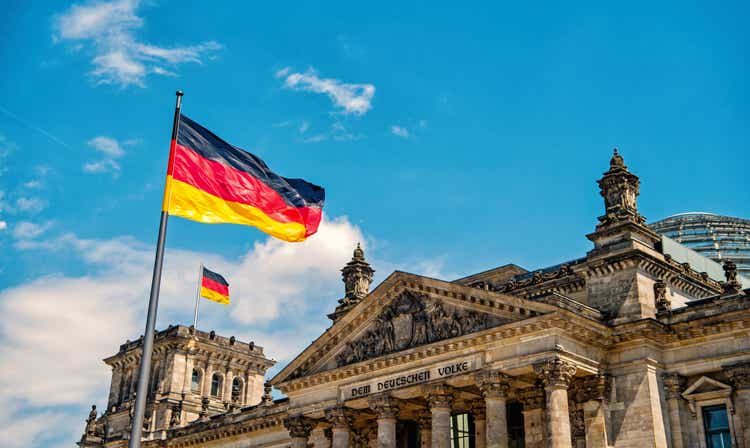photosvit
Germany, Europe’s largest economy and its economic powerhouse, is casting a dark cloud over the European and world economic outlook. It is not simply that the German economy has already stalled as a result of the combination of high inflation, the pandemic, and an unusually dry summer. It is that Germany’s energy and export-dependent economy is highly vulnerable to a shutdown in Russian natural gas supply and to any further slowing in the Chinese economy.
Even before the onset of winter, the German economy is in poor shape. Mainly as a result of soaring energy prices in the wake of Russia’s invasion of Ukraine, German inflation has risen to a multi-decade high of 8.5 percent. In the meantime, consumer confidence has plummeted and the economy registered zero growth in the second quarter of the year. These developments have induced the International Monetary Fund to downgrade its German economic growth forecast to barely 1.2 percent for 2022, which would mark the weakest economic growth among the G-7 economies.
It is in this weakened state that the German economy will now be confronted with two major challenges this winter that could throw the country into a deep economic recession. The first is that Vladimir Putin might follow through on his threat to totally cease exporting natural gas to Germany. He might do so with a view to reducing Germany’s support for Ukraine in its war with Russia. The second is that China’s economic slowdown could gather pace as a result of that country’s zero-tolerance COVID policy as well as the acute problems in its property sector.
Vladimir Putin is making no secret of his intention to cut Germany completely off from Russian energy exports this winter. In order to prevent Germany from building up its natural gas inventories ahead of the winter, Putin has already reduced natural gas exports to Russia to around 20 percent of their normal level. This will constitute a major blow to the Germany economy considering that more than half of that country’s natural gas consumption is provided by Russian natural gas imports.
A recent IMF report estimated that a total Russian energy export shutdown could shave as much as 1.5 percentage points off German gross domestic product (GDP) in 2022 and 2.75 percentage points in 2023.
Beyond having allowed its economy to become overly dependent on Russian energy imports, Germany has allowed its economy to become overly dependent on its export sector. Germany is now the most open of the G-7 economies, with exports accounting for almost half of its GDP. This makes it particularly vulnerable to any slowing in the European and Chinese economies.
Of particular concern to Germany has to be the abrupt prospective slowing in the Chinese economy whose imports from Germany account for 8 percent of Germany’s GDP. This means that the German economy might take a large hit from China’s zero-tolerance COVID policy and the present bursting of the Chinese housing market bubble. The German economy could also take a hit from the likely sharp slowing in the Italian, Hungarian, and Polish economies if Vladimir Putin also turns off those countries’ Russian energy imports this winter.
All of this has to be deeply troubling not only for Germany but also for the European economic and political outlook. When in 1999 Germany joined the Euro and allowed the European Central Bank to replace the Bundesbank, Germany did not think that it was signing up for the high inflation and the stalling economy that it is now experiencing. This could very well undermine German political support for Europe at the very time when Italy’s renewed political instability could precipitate another Italian sovereign debt crisis.
In adopting its hawkish monetary policy stance, it is far from clear that the Federal Reserve has taken into account the likelihood of the European economy succumbing to recession this winter. This has to heighten the chances of a hard US economic landing considering that a renewed European recession would be occurring at the same time when Chinese economic growth is slowing abruptly on account of that country’s zero-tolerance COVID policy and property sector woes and when the emerging market economies are starting to default on their debts.
Editor’s Note: The summary bullets for this article were chosen by Seeking Alpha editors.


Be the first to comment